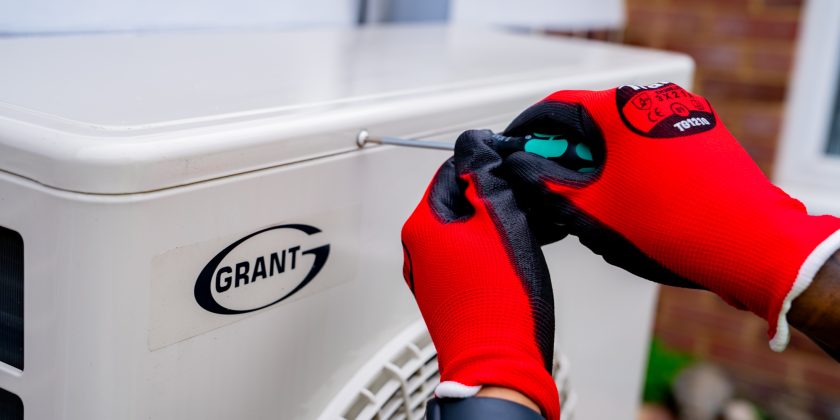By now, most people know that we are transitioning to a net-zero future. One of the ways we’re doing this is by using different, more energy efficient ways of heating the home.
The one everyone is talking about is the heat pump – but what is it and what can it do for you?
How they work?
There are three types of heat pump available:
- Ground source heat pump
- Water source heat pump
- Air source heat pump
They are electrically powered and work by absorbing heat from the air, ground or water around a building.
An air source heat pump, for example, sucks in air from the outside and passes it over tubes containing refrigerant fluids to produce heat.
What’s the benefit?
The energy process is cleaner and greener. As we said at the top, we are headed for a net zero future, trying to eliminate our dependence on less efficient sources of energy. For every unit of electricity that a heat pump uses, it will generate 3.3 units of heat. Compare this with gas boilers which produce 0.7 of a unit of heat for every unit of gas.
Durability
The average gas boiler has a lifespan of 10 to 15 years. In comparison, heat pumps are built to last for at least 15 years and with the right kind of maintenance, are believed to have the ability to last for up to 50 years. There are all kinds of warranty deals available for anyone looking to get one, so it’s definitely worth shopping around.
The government will help!
The government is offering grants to those eligible to help with the cost of replacing your old gas boiler with a heat pump. The grant goes up to £5,000 and that applies to anyone applying in England and Wales. In Scotland, you can, if eligible, get a grant of up to £7,500.
The government will provide £6,000 for the less commonly used ground source heat pump (GSHP) or water-source heat pump (WSHP). This would cover between 30% and 50% of the cost of the unit, although the cost of installation (digging a hole, for instance) could be significantly higher. Some websites claim the overall cost – the unit and installation – could be between £12000 and £15,000.
How long have I got?
The government says there will be a phase out of the old boiler systems by 2035. Although that date may change.
But what we do know is that English homes produce more carbon emissions than cars. This country has more old homes than any other part of Europe and they are, in most instances, more inefficient than new homes when it comes to heating and emissions.
Will it be cheaper?
The government has outlined five reasons why you should commit to a heat pump. At the top of the list is reducing your bills. Once installed – and that can be the most arduous part of the process – heat pumps can save you up to 52% on your energy bills. Which is the news you’ll want to hear after a year when, with the war in Ukraine still ongoing, the average energy bill rose by 54% last April and then 80% in October, with further rises expected in April.
PropCert provides dependable Domestic EPCs with countrywide coverage, fully accredited assessors, and the option to track your order in real time online. We have a solid reputation for being honest, dependable, and affordable.
